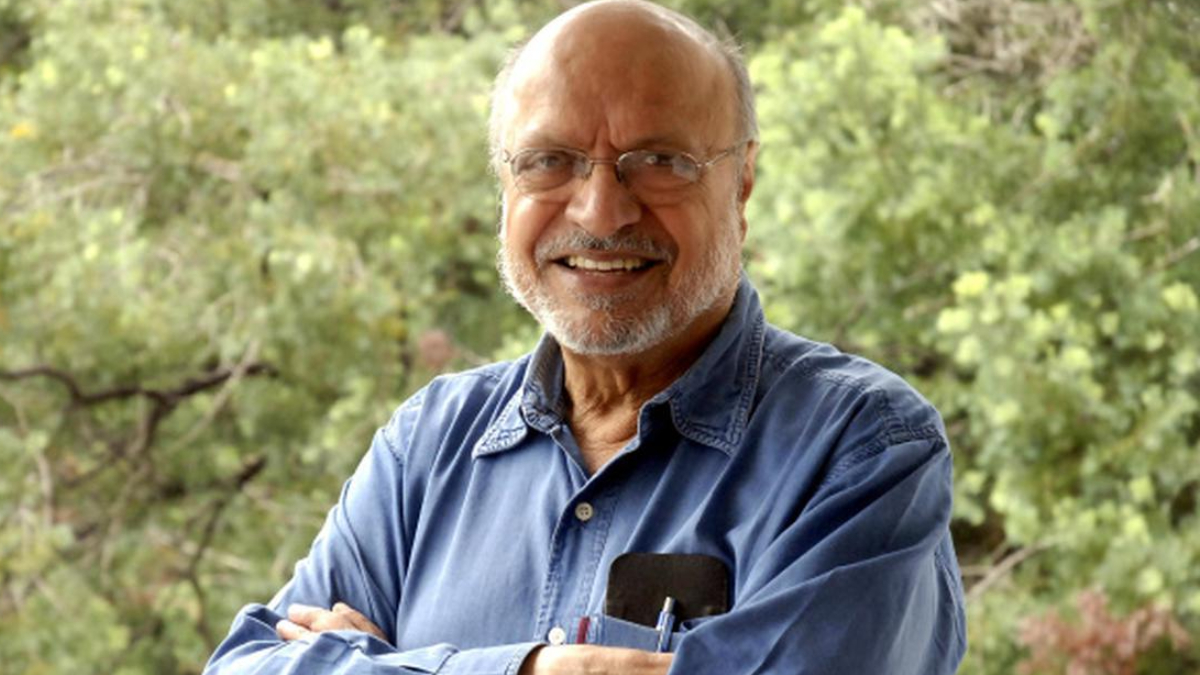Shyam Benegal, one of the most influential filmmakers in the history of Indian cinema, passed away on December 23, 2024, at the age of 90, leaving behind an indelible legacy that will forever shape the world of filmmaking.
In 1958, when his older cousin Guru Dutt Padukone made films in the 50s, 23- year-old Shyam Benegal was inspired to enter the movies and moved from Hyderabad to Mumbai. Guru Dutt advised him to pursue his own career instead of working as his assistant, saying, “Which means you won’t really get to do anything except run errands for me.” Benegal’s paternal grandmother and Dutt’s maternal grandmother were sisters. Following Dutt’s advice, Benegal joined an advertising agency.
He made his directorial debut in 1974 with Ankur, after an ad film distributor offered him a small sum to make his first film. Ankur is a powerful tale of social and caste struggles in rural India. Benegal’s nuanced direction and compelling characters made it a landmark in Indian cinema, winning the National Film Award for Second Best Feature Film. That same year, he made Charandas Chor, a children’s film that introduced Smita Patil to Indian cinema. He followed it up with Nishant (1975), which, set in feudal India, explored power and oppression. Nishant’s stark portrayal of societal hierarchies earned it the National Film Award for Best Feature Film in Hindi. After the Emergency, Benegal made Manthan (1976), which highlighted the White Revolution and the rise of cooperative dairies, focusing on rural empowerment. Its heartfelt narrative and social impact earned critical acclaim. He continued his impressive pace with Bhumika:
The Role (1977), the bilingual Kondura/Agraharam (in Hindi and Kannada), and Junoon (1979). Set during the British Raj, Junoon is a historical drama filled with passion and revolution. Its strong narrative and character depth won the National Film Award for Best Feature Film in Hindi. He followed it with Kalyug (1981) and Arohan (1982), which explored class struggles. Arohan focused on the journey of a young man torn between personal ambition and social duty, winning widespread acclaim. Benegal’s career spanned over five decades, revolutionizing Indian cinema with films that painted vivid portraits of India’s social realities with honesty, sensitivity, and grace. His films were not just about entertainment— they were powerful, thought-provoking explorations of human nature, culture, and society.
His works always reflected the world as it truly was—beautiful, flawed, and filled with untold stories. Benegal’s films embraced realism and rooted themselves in the country’s diverse communities and histories. His work focused on marginalised voices, exploring issues of caste, gender, and the complexities of rural life. His narratives were never distant; they were relatable, compassionate, and, most importantly, human. Beyond the silver screen, Benegal bridged history and contemporary thought through his television work, making complex narratives accessible and relevant to millions.
His documentaries on Satyajit Ray and Jawaharlal Nehru, along with his television series like Bharat: Ek Khoj, Yatra, Katha Sagar, and the 10-part miniseries Samvidhaan on the Constitution, are top-of-mind recalls, even as he earned 16 National Awards. A man of quiet dignity, Benegal operated from his quaint office in Everest Building, Tardeo, Mumbai. Shyam Babu, as he was fondly called, stood tall during the peak of Parallel Cinema in the Seventies and Eighties. His approach to filmmaking was deeply intellectual and intensely personal.
He challenged norms, broke barriers, and altered how cinema was viewed. His films spoke not only to India but to the world. Benegal’s lasting impact will be remembered for the humanity he infused into every project. His ability to tell meaningful stories, evoke emotion, and spark dialogue was a gift that will continue to resonate long after his passing. He celebrated the nuanced, the ambiguous, and the deeply human, reflecting society’s beauty and imperfections with an honesty that was his signature.
Shyam Benegal was the last of a rare breed of filmmakers who had watched India’s first talkie film Alam Ara. He stood as a living link to a time when cinema was evolving from silent films to sound, a time when the possibilities of storytelling were just beginning to unfold. With his passing, a chapter of history closes, and a voice that could speak of Alam Ara—a film whose print has long been lost—has fallen silent. This writer had wished him a few days ago on his 90th birthday when he shared that he was working on a few film ideas.
